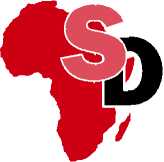provided by Research Papers in Economics

Global Bureau, Office
of
Agriculture and
Food Security

USAID
U.S. Agency for
International
Development
POLICY SYNTHESIS
for Cooperating USAID Offices
and Country Missions
(http://www.aec.msu.edu/agecon/fs2/psynindx.htm)
Number 43 April 1999

Office of Sustainable
Development
TOWARDS A STRATEGY FOR IMPROVING
AGRICULTURAL INPUTS MARKETS IN AFRICA
By
Valerie A. Kelly, Eric W. Crawford, Julie A. Howard, Thomas Jayne,
John Staatz, and Michael T. Weber
Food Security II Cooperative Agreement between U.S. Agency for International Development, Global Bureau, Economic Growth Center,
Office of Agriculture and Food Security and Department of Agricultural Economics, Michigan State University
BACKGROUND: As we enter the 21st
century, figuring out how to improve rural as
well as urban food security, and to stimulate
underlying food system development in Africa
remains a major challenge. For over a decade
MSU’s Food Security Project has investigated
the factors affecting farm productivity and
agricultural inputs. This research has been
based on a number of field surveys across
Africa involving host country research
collaborators, and MSU students and faculty.
This research actually began in the mid- 1980s,
prior to the Food Security Project, with
studies of Senegal’s fertilizer and seed
distribution systems and factors affecting
farmers’ adoption of fertilizer. Later the
research evolved to cover broader studies of
social, economic and environmental factors
influencing farm productivity throughout Sub-
Saharan Africa (e.g., Burkina Faso, Rwanda,
Zimbabwe, Zambia).
More recent efforts include analyses of the
impact of structural adjustment reforms on
input sectors (particularly in countries of the
CFA franc zone), and studies of promising
private sector and government initiatives to
lower the cost of supplying inputs and other
technology to farmers (Ethiopia,
Mozambique, Kenya, Mali). Related research
has been conducted on agricultural
technology development and transfer, output
marketing and market information systems,
and synergies between cash and food crops.
Field studies have been complemented with
literature reviews on fertilizer response and
profitability; technical aspects of the
interactions between fertilizer use, organic
matter, and soil quality; and seed sector
development.
OBJECTIVE: Host country and donor
policy makers are currently revisiting the
important question of how to develop
realistic and sustainable strategies for
Page 1
More intriguing information
1. Structure and objectives of Austria's foreign direct investment in the four adjacent Central and Eastern European countries Hungary, the Czech Republic, Slovenia and Slovakia2. Linkages between research, scholarship and teaching in universities in China
3. The name is absent
4. Distribution of aggregate income in Portugal from 1995 to 2000 within a SAM (Social Accounting Matrix) framework. Modeling the household sector
5. An Attempt to 2
6. NATIONAL PERSPECTIVE
7. The name is absent
8. Who’s afraid of critical race theory in education? a reply to Mike Cole’s ‘The color-line and the class struggle’
9. Target Acquisition in Multiscale Electronic Worlds
10. Assessing Economic Complexity with Input-Output Based Measures